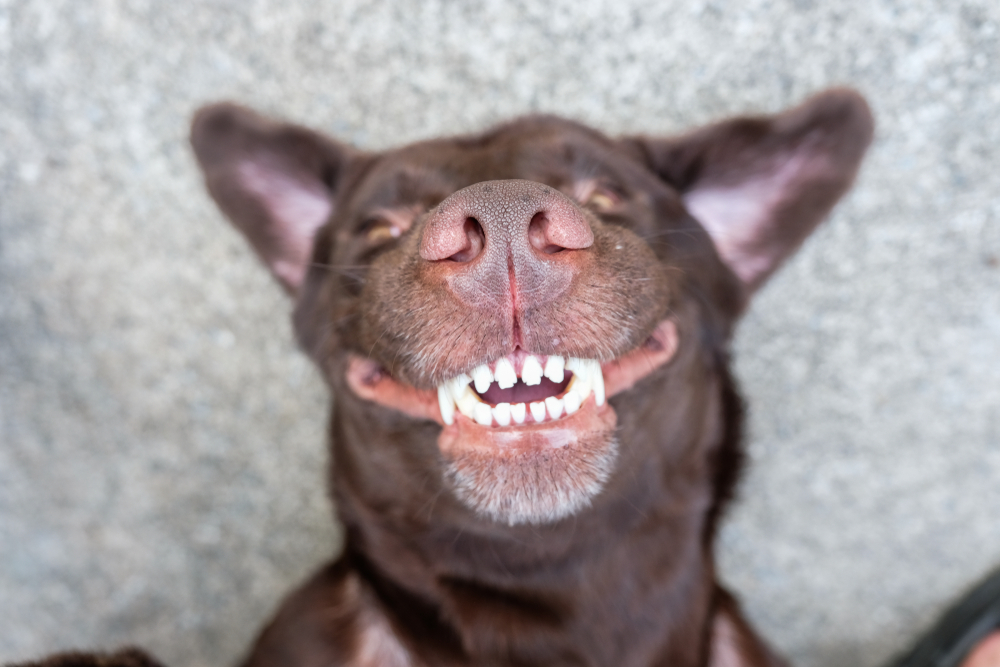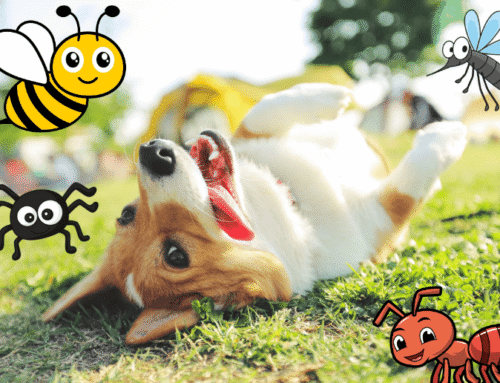Professional veterinary dental care is about more than improving your pet’s smile. Routine oral hygiene procedures can minimize or prevent periodontal disease—a progressive, painful, and debilitating condition that affects your pet’s teeth, gums, and surrounding bone.
Here are seven reasons why our Mount Pleasant Animal Hospital team recommends professional dental care for all pets.
#1: Your pet’s dental health affects their overall health
Untreated periodontal disease is more than dirty teeth. When oral bacteria go unchecked, they multiply and enter a pet’s bloodstream. Once in general circulation, the bacteria travel to the heart, where they trigger inflammation (i.e., endocarditis) and may cause valvular damage and heart failure. The kidneys and liver—responsible for filtering toxins and waste products from the blood—are also affected by the overwhelming bacteria, resulting in decreased organ function and irreversible systemic damage.
Routine dental care can interrupt this process before your pet experiences permanent injury.
#2: Periodontal disease can affect your pet’s quality of life
Chronic pain from broken or infected teeth can affect your pet’s personality and behavior, causing once-friendly pets to become irritable, isolated, or unpredictable. Pets suffering from periodontal disease may avoid pain-inducing activities such as facial petting and physical affection or playing with their favorite toys. This decreased activity can lead to boredom, weight gain, and depression and become a harmful cycle with its own health and behavioral consequences.
Annual exams and periodic dental cleanings under anesthesia can identify and address periodontal disease-related changes and protect your pet from chronic pain.
#3: Early periodontal disease occurs below your pet’s gumline
Periodontal disease is not a senior pet condition. According to veterinary dental experts, at least 70% of dogs and 80% of cats show some periodontal disease-related oral changes by 3 years of age. But because early disease occurs below the gumline, pet owners aren’t aware of its presence until the condition is well-established and, unfortunately, irreversible.
Professional oral hygiene procedures commonly include full-mouth dental X-rays that allow your pet’s veterinarian to view each tooth from crown to root tip, as well as the supporting structures (e.g., periodontal ligament) and surrounding bone. X-rays increase your veterinarian’s diagnostic power and reveal otherwise hidden pathologies, such as:
- Fractured or missing roots
- Tooth resorption (i.e., feline oral resorptive lesions or FORL)
- Infection and abscesses
- Retained teeth
- Cancer
#4: Oral assessment under anesthesia ensures thorough pet care
Anesthesia can be a frightening concept, but it is integral and necessary for safe and successful oral health procedures. General anesthesia ensures a stress-free experience for your pet as they sleep peacefully through the procedure. Anesthesia also creates absolute stillness, which protects your pet from accidental injury and ensures our veterinary team’s safety as they work inside your pet’s mouth. Only with complete stillness can our veterinarians thoroughly examine the oral cavity—including the teeth, gums, lips, tongue, palate, and upper airway. This close assessment often reveals issues that were hidden during the initial exam when your pet was awake —including oral masses, foreign objects, and dental abnormalities.
Regular oral health procedures allow our veterinarians to track and monitor your pet’s oral health and provide more comprehensive care.
#5: Periodic scaling and polishing provides pets a fresh start
Accumulated plaque and tartar act like a framework for new oral bacteria to grow and proliferate. The scaling process uses a combination of ultrasonic and manual techniques and specialized instruments to break the invisible and visible bacterial bonds and restore your pet’s pearly whites. After each aspect of every tooth is carefully scaled above and below the gumline, this detailed process is repeated with a polisher to create a smooth—and bacteria-resistant—surface.
This deep-cleaning process, which can only be performed under anesthesia, provides a reset for your pet’s oral health and, when performed consistently, can slow or effectively halt periodontal disease.
#6: Extractions and advanced treatment can relieve pet pain and suffering
If your pet is experiencing pain or infection from dental decay or another oral problem, your veterinarian can provide interventional treatment. This typically requires extracting the affected tooth. Although this sounds drastic, dental extractions are the most effective and economical way to eliminate periodontal disease damage and associated pain. Typically, your pet will receive perioperative pain management, including a local anesthetic, and post-extraction therapies to ensure they don’t feel anything except relief.
If your pet’s dental injury requires advanced care or oral surgery, our veterinarians will refer you to a board-certified veterinary dental specialist.
#7: Proactive professional care can preserve and prolong your pet’s oral health
Regular professional dental care is an investment in your pet’s health and wellbeing. By reducing oral bacteria and vigilantly preventing or managing pain, infection, and inflammation, routine dental care at Mount Pleasant Animal Hospital can extend your pet’s life span by as much as three to five years.
Professional veterinary dental care isn’t a luxury, it’s a necessary part of ensuring your pet’s health, comfort, and longevity. For more information about our commitment to anesthetic safety and pain management, visit our surgery page. To schedule your pet’s dental consultation, contact our friendly and knowledgeable Mount Pleasant Animal Hospital team.








